
The level of support is still low and indiscriminate.
According to Deputy Minister of Construction Nguyen Van Sinh, based on decisions of the Prime Minister, in the period 2013-2019, the whole country completed support for 339,176 households of war veterans and martyrs in need of housing construction or repair, reaching 96.7%; in the period 2015-2020, support was provided to 117,427 out of 236,324 poor households, reaching 50%; and in the period 2014-2021, support was provided to 19,032 out of 23,797 poor households in flood-affected areas in need of housing construction or repair, reaching 80%.
Besides the achievements, opinions at the meeting suggested that a comprehensive and overall assessment of the effectiveness of all policies and programs supporting housing for war veterans, the poor, people in remote, disadvantaged, mountainous, and island areas, etc., implemented with resources from the state, society, and development aid, is needed.
Deputy Minister of Planning and Investment Do Thanh Trung pointed out that there are currently many different socio-economic development programs and policies that include housing support, such as the three national target programs: New Rural Development; socio-economic development in ethnic minority and mountainous areas; sustainable poverty reduction; the movement to eliminate temporary and dilapidated houses; and the construction of solidarity houses… Each program is implemented according to different regulations, causing difficulties for local authorities, especially at the grassroots level, in identifying and compiling statistics on households needing support to avoid overlap and duplication.
For example, families who are both war veterans and poor households, living in flood-prone areas or areas eligible for national target programs on poverty reduction and socio-economic development in ethnic minority and mountainous regions, must determine the level of support to ensure the highest benefit for the people while avoiding overlap and duplication.
Furthermore, housing support policies for revolutionary veterans, rural poor, and flood-affected poor still reveal many shortcomings and limitations. These include low, indiscriminate support levels that do not take into account the specific characteristics of different regions. The criteria for housing construction support are limited to level 4 houses with three solid elements (solid walls, solid foundation, solid roof). The state only supports people in building and repairing houses, without considering the overall planning and development of accompanying social infrastructure such as electricity, roads, schools, and health stations. The direct support and low-interest loan mechanisms are not suitable for the economic circumstances of many poor households.

Enhancing the leading role of the State
Concluding the meeting, Deputy Prime Minister Tran Hong Ha emphasized the important, correct, and humane significance of housing support policies for people with meritorious services to the revolution, the rural poor, and the poor in flood-affected areas.
These policies have demonstrated the superior nature of the regime, receiving immense support and attention, as well as recognition and high praise from the entire political system, all strata of society, and society as a whole.
This is an important part of social policy for developing housing for the people of Vietnam.
The evaluation of the effectiveness of these three policies must be considered in relation to and linked with other programs, mechanisms, and policies. Similarly, the results of housing support for people with meritorious service to the revolution, the rural poor, and the poor in flood-affected areas are not outside the overall goal of housing support for social policy beneficiaries in particular, and the implementation of social policies to develop housing in general.
At the same time, it is necessary to clarify the position, role, and responsibilities of the State, the Fatherland Front, political and social organizations, agencies, businesses, and individuals in mobilizing, contributing to, and utilizing resources for social housing support.
Along with a thorough assessment of what has been achieved and the need to continue building upon it, the Deputy Prime Minister pointed out several shortcomings and limitations in the mechanisms and policies supporting housing, such as: a lack of overall coherence and uniformity due to "designs" from different periods; differences in the mechanisms for using funding sources from the state budget, funds of socio-political organizations, and contributions from businesses, organizations, and individuals; and unclear roles and responsibilities of relevant parties (the State, society, and beneficiaries),…
The Deputy Prime Minister requested the Ministry of Construction to urgently coordinate with the Ministry of Agriculture and Rural Development, the Ministry of Planning and Investment, the Ministry of Finance, the Ministry of Natural Resources and Environment, etc., to finalize the summary report; and propose mechanisms and policies to support new housing.
Policies must clarify the scope, target groups to be supported, and support mechanisms for each group, such as war veterans, the poor in disadvantaged areas, and the poor in general.
The level of support is determined based on the socio-economic characteristics of different regions, such as remote areas, mountainous regions, islands, flood-prone areas, or rural areas in plains and urban areas.
In this regard, the State is responsible for: providing direct support to people with meritorious services; providing partial support and loans at the lowest possible interest rates to poor households in need of building or repairing houses; issuing unit prices, technical standards, and criteria for housing that ensure safety, have sufficient accompanying infrastructure, and are adaptable to climate change; and developing plans and reorganizing residential areas in regions affected by natural disasters and floods.
The Fatherland Front, agencies, organizations, businesses, and individuals allocate funds and resources to other disadvantaged groups in need of housing assistance.
Local authorities are responsible for organizing and implementing housing support programs and policies in their areas.
The Deputy Prime Minister noted, "It is necessary to clearly identify the beneficiaries, funding sources, and implementers, ensuring fairness and consistency. Under similar conditions, the level of support from the State or society should be the same." At the same time, he emphasized the need to leverage entities already performing well in this area, such as the Social Policy Bank and the Fatherland Front, to avoid the dispersion and fragmentation of resources.
The Deputy Prime Minister emphasized: Policies must affirm the leading role of the State in supporting housing for war veterans, the poor, and those still facing difficulties. The ultimate goal is to ensure that all citizens live in a safe environment, enjoy the fruits of development, and that no one is left behind.
TN (according to Chinhphu.vn)Source



![[Image] Close-up of the newly discovered "sacred road" at My Son Sanctuary](/_next/image?url=https%3A%2F%2Fvphoto.vietnam.vn%2Fthumb%2F1200x675%2Fvietnam%2Fresource%2FIMAGE%2F2025%2F12%2F13%2F1765587881240_ndo_br_ms5-jpg.webp&w=3840&q=75)



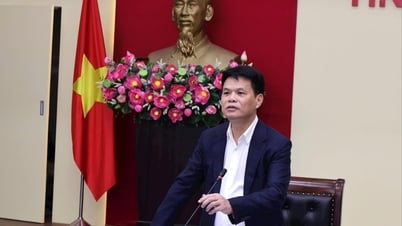
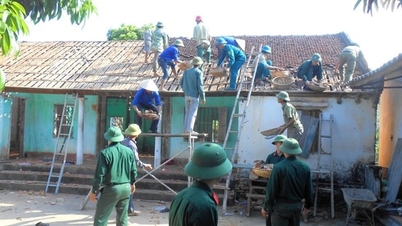















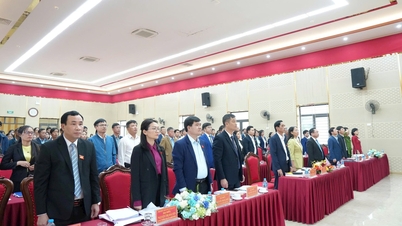




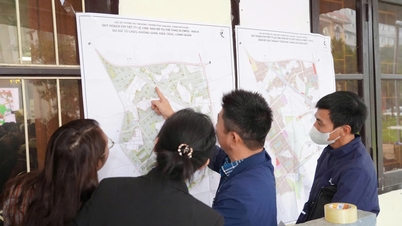


























































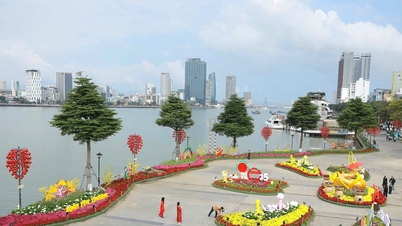


















Comment (0)